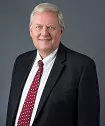On July 25, 2012, the United States District Court for the Western District of Wisconsin issued an opinion holding that participants in the Trachte Building Systems, Inc. Employee Stock Ownership Plan could amend their complaint to add the spouse of the trustee as a defendant in a claim alleging the spouse was the gratuitous transferee of phantom stock units under Section 502(a)(3) of the Employee Retirement Income Security Act of 1974, Pub. L. No. 93-406, 88 Stat. 829 (codified in part at 29 U.S.C. § 1002). Participants alleged that the trustee deposited $2,896,100 from a phantom stock plan into an account held solely by his spouse and that the spouse gave no consideration in exchange for the deposit. The court concluded that participants demonstrated "good cause" under Federal Rule of Civil Procedure 16 for deviating from the deadline for amending the complaint. Participants sought production of information relating to the payment, which the trustee refused to produce. The trustee responded to the discovery request only after the court issued a preliminary ruling concluding that the trustee would likely be liable.
The litigation arose from a failed ESOP spinoff. An acquirer adopted an ESOP to facilitate acquisition of a target, which had adopted an ESOP which owned 80% of the target's issued and outstanding capital stock. The target's ESOP was merged with the acquirer's ESOP, with participants in the former becoming participants in the latter. After several attempts to sell the target to a third-party, the acquirer consummated the sale of the target to the ESOP of a newly-organized corporation. The acquirer spun off its ESOP to the newly created ESOP, permitting the trustee, who also served as the president of the acquirer, to benefit from the redemption of phantom stock units. Shortly thereafter, the value of participant accounts declined by approximately 50%, and eventually became worthless due to the significant amount of debt assumed by the newly-organized corporation. Participants filed a complaint alleging violations of ERISA. The court ultimately rendered a judgment in favor of participants and concluded that the trustee breached fiduciary duties of loyalty and care by dealing with plan assets in his own interest and receiving consideration from a party dealing with the plan.
Department of Labor Files Action Seeking to Recover Losses Suffered by Participants
On July 24, 2012, the United States Department of Labor filed a complaint in the United States District Court for the District of New Jersey seeking to recover losses suffered by participants in the SJP Group Inc. Employee Stock Ownership Plan. The complaint alleges that a special fiduciary did not fulfill its fiduciary duties when it approved the ESOP's purchase of 38% of the outstanding stock of SJP Group, Inc. from an individual who was a corporate officer, director, and ESOP fiduciary. Specifically, the complaint alleges a prohibited transaction based on the ESOP purchasing the capital stock from the corporate officer for more than fair market value. The complaint seeks to have the special fiduciary and corporate officer enjoined from serving as fiduciaries of ERISA-protected plans.
Secretary of Labor Asks Seventh Circuit to Reject Moench Presumption
On May 30, 2012, United States Secretary of Labor Hilda L. Solis filed an amicus brief requesting the United States Court of Appeals for the Seventh Circuit reverse a district court judgment dismissing a stockdrop claim for failing to rebut the presumption of prudence.
The United States District Court for the Eastern District of Wisconsin granted a motion to dismiss filed by the defendant bank in a class action stock-drop lawsuit after concluding that participants failed to demonstrate either an excessive risk of an impending collapse or some equivalent dire circumstances. The DOL urges the Seventh Circuit to reject the presumption of prudence articulated in the Third Circuit's landmark decision Moench v. Robertson, 62 F. 3d 553 (3d Cir. 1995). The DOL contends that the only exception to the duty of prudence imposed by ERISA on plan fiduciaries is Section 404(a)(2) of ERISA, which exempts eligible individual account plan fiduciaries from the duty to diversify plan assets. The DOL further contends that the presumption of prudence lacks a compelling justification.
AGENCY NEWS
Assistant Secretary Borzi Addresses Re-Proposal of Regulation Redefining Term "Fiduciary"
Assistant Secretary of Labor Phyllis C. Borzi addressed the re-proposal of the regulation redefining the term "fiduciary" at the Great Lakes Benefits Conference, American Society of Pension Professionals and Actuaries and the Internal Revenue Service. In October 2010, the Department proposed a regulation that would expand the definition of the term "fiduciary" under Section 3(21)(A) of ERISA. In September 2011, the Department withdrew its proposal. Assistant Secretary Borzi stated that the re-proposed regulation would address concerns expressed about the initial proposal and would include a more comprehensive economic analysis. Borzi also addressed the reproposal in a June 20, 2012 letter addressed to House Representatives John Kline (R-MN) and George Miller (D-CA). The letter promised a "more robust economic analysis" focusing on the economic effect that the re-proposed regulation will have on sponsors, employees, and retirees.
ON CAPITOL HILL
Pro-ESOP Legislation Re-Introduced into Senate
On July 23, 2012, Senator Bernard Sanders (I-VT) introduced S. 3421, the "Worker Ownership, Readiness, and Knowledge Act," to the United States Senate. The bill is a re-introduction of S. 2909, 111th Cong. (2009). The bill directs the Secretary of Labor to establish an "Employee Ownership and Participation Initiative" to promote employee ownership and employee participation in business decision-making. The bill directs the Secretary to make funding available to states and to collaborate with state officials to promote employee ownership. The bill has four cosponsors and is currently pending before the Senate Committee on Health, Education, Labor, and Pensions.
On July 23, 2012, Senator Bernard Sanders (I-VT) introduced S. 3419, the "United States Employee Ownership Bank Act," to the United States Senate. The bill is a re-introduction of S. 2914, 111th Cong. (Dec. 18, 2009). The bill: (1) Provides for the establishment of the United States Employee Ownership Bank; (2) Authorizes the Bank to provide loans or guarantees to foster employee ownership; (3) Establishes guidelines governing loans and guarantees made by the Bank; (4) amends the Worker Adjustment and Retraining Notification Act, Pub. L. No. 100-379, 126 Stat. 365 (codified at 29 U.S.C. § 2102 et seq.), to provide employees a right of first refusal to purchase the business of their employer in the event the employer orders a plant or facility closing; And (5) amends the Community Reinvestment Act of 1977, Pub. L. No. 95-128, 91 Stat. 1147 (codified at 12 U.S.C. § 2903 et seq.), to authorize a financial supervisory agency to consider financial assistance undertaken by a financial institution to support and facilitate employee stock ownership plans. The bill has four cosponsors and is currently pending before the Senate Committee on Banking, Housing, and Urban Affairs.
Pro-ESOP Legislation Garners Support
Since July 1, 2012, H.R. 1244, The "Promotion and Expansion of Employee Ownership Act of 2011" has gained two cosponsors to arrive at seventy-eight total cosponsors. Representatives Ted Poe (R-Tex) and Joe Heck (R-Nev) have cosponsored the bill. The bill is currently pending before several House Committees and one House Subcommittee. The bill: Amends Section 1042 of the Internal Revenue Code of 1986, as amended to allow an S corporation shareholder to defer recognition of capital gain realized from the sale of employer securities to an ESOP; Adds a new section to the Code permitting banks to deduct 50% of the interest received from a qualified securities acquisition loan; Adds a new section to the Code requiring the Secretary of the United States Department of the Treasury to establish the "S Corporation Employee Ownership Assistance Office" to foster employee ownership of S corporations; And amends the Small Business Act, Pub. L. No. 85-536, 72 Stat. 384 (codified at 15. U.S.C. § 631 et seq.), to permit a corporation eligible to participate in loan, contracting assistance, or business development programs to remain eligible to participate after an ESOP acquires 50% or more of the corporation.
RECENT RESEARCH
Study Indicates Jobs Grew by Approximately 60 Percent Over the Past Decade at ESOP-Owned S Corporations Compared with Other Corporations
On July 26, 2012, Alex Brill, former advisor to the Simpson-Bowles bipartisan deficit reduction commission, released a study indicating that among S corporations owned by an ESOP, job growth increased by 60% over the past decade, whereas job growth in the private economy remained relatively flat. Brill observed that "[t]he unique strengths of employee ownership drove company gains and jobs in the past decade, while helping insulate S-ESOP businesses from the adverse effects of the recent recession." Brill's study evaluated the performance of S corporations through a survey of 56 ESOP-owned S corporations and through analysis of data from the DOL. Other significant observations include: (1) ESOP-owned S corporations demonstrated significantly more employment growth than private businesses in the pre-2008 recession period; (2) ESOP-owned S corporations developed momentum quicker than other private firms after the recession; And (3) ESOP-owned S corporations engaged in manufacturing gained substantial benefit from their structure during the recession. Brill indicated that these positive economic results may be correlated to the beneficial effects of an employee ownership culture in private businesses. Brill also indicated that employees are substantially more invested in the success of their employer because the employees understand that it will affect their own economic well-being.
The content of this article is intended to provide a general guide to the subject matter. Specialist advice should be sought about your specific circumstances.
We operate a free-to-view policy, asking only that you register in order to read all of our content. Please login or register to view the rest of this article.




